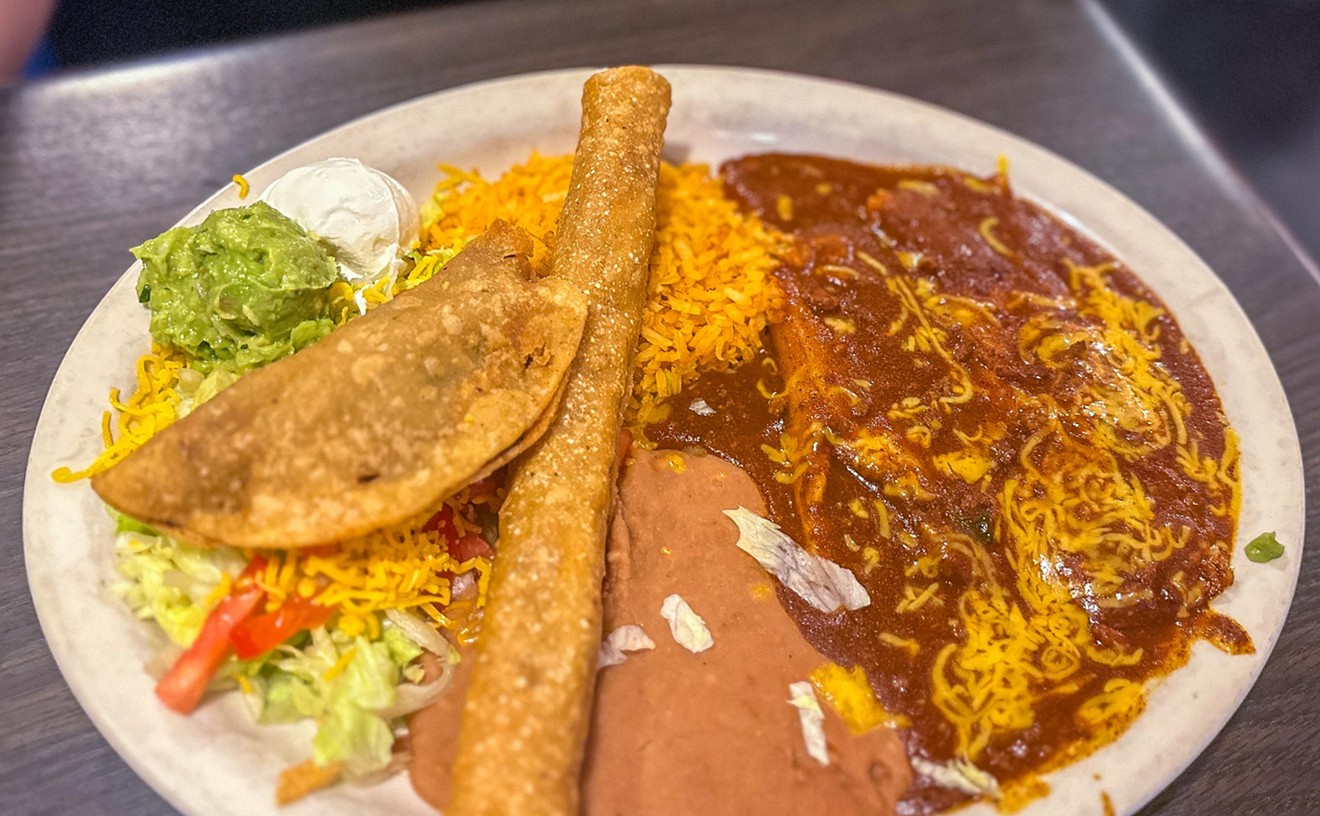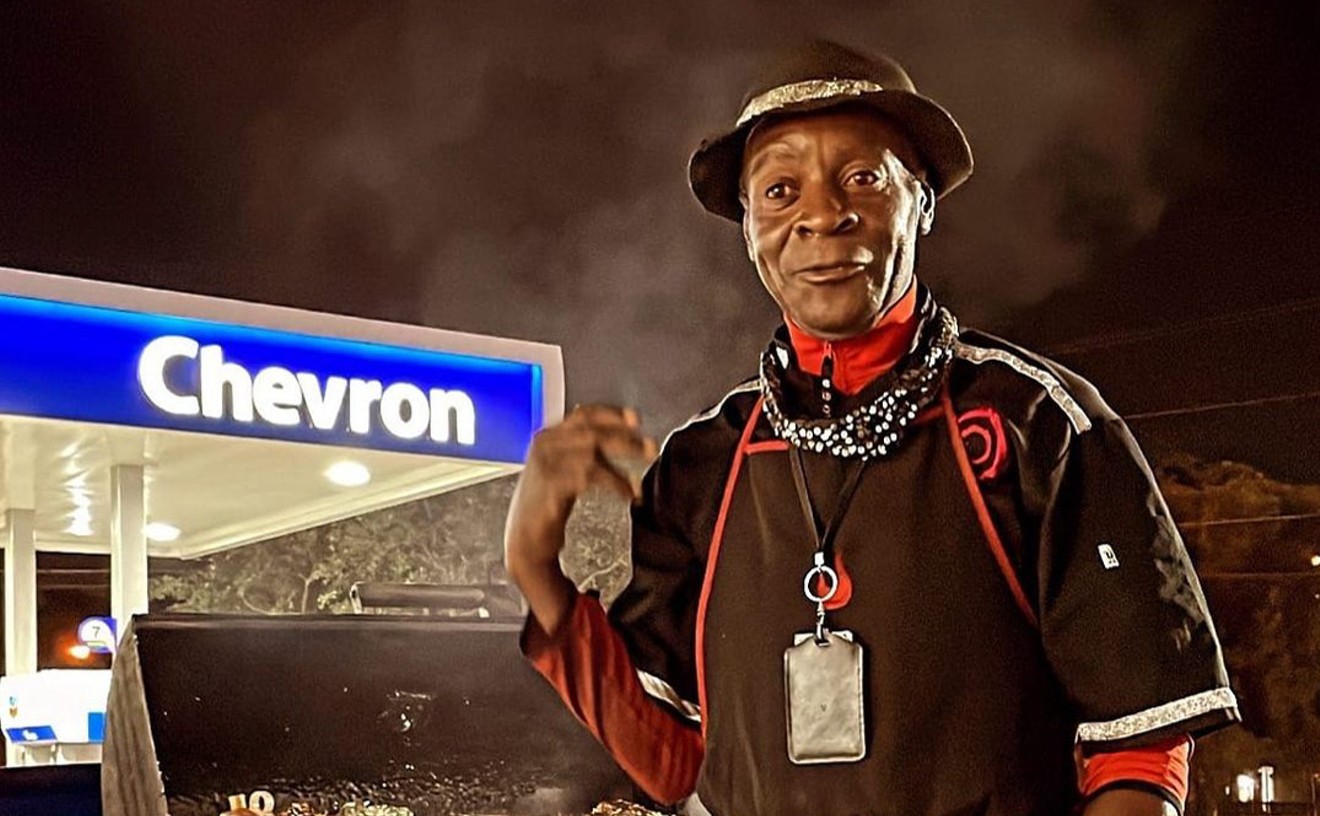Denny's hasn't changed much, according to Bridgette Goode.
Back in 1991, 18 members of a black youth group attending a civil-rights conference in San Jose, California, tried to enter a Denny's restaurant. The staff asked them to pay in advance for food service and to pay a cover charge--must have been a great band rocking Denny's that night. Two years later, a Denny's in Annapolis, Maryland, refused to seat six black men--all Secret Service agents guarding the president. It was difficult for the restaurant chain to avoid publicity on that one, especially when Denny's staff ushered the agents' 15 white colleagues to a table promptly.
"Denny's is still notorious for seating people who came in after you before they seat you," claims Goode, an African-American. "And until I 'act ethnic' and loudly ask them why, I don't get seated."
Shoney's, Waffle House, and other restaurants have also come under fire in recent years. Pizza Hut suspended an Illinois manager in 1996 for hurling racial slurs at a black woman and her children. In 1994, a year after the Secret Service fiasco, Denny's agreed to pay the whopping sum of $45.7 million in damages to several thousand African-Americans the restaurant chain either refused to serve or forced to pay in advance for service. The chain also promised diversity training for employees--although it never admitted a policy of discrimination. Yet even Goode refuses to blame the chain. "It's a matter of the person who's dealing with you, not the restaurant," she says. Therein lies the rub. Minorities may sense affronts more keenly due to lifelong experience. But to paraphrase Freud, sometimes sloppy service is just sloppy service.
Still, racial discrimination occurs on a daily basis. Dallas-area restaurants have thus far avoided Denny's-style breaches, although several black residents interviewed for this story reported incidents of poor service, slower seating, and similar annoyances. "How do you combat it in the workplace?" asks Richard Chamberlain, one of the few restaurateurs willing to speak about the issue. A spokesman for Brinker International displayed a marked lack of enthusiasm for the topic, for example, belying his spokesman role. ("That's an article I want to be mentioned in," he said sarcastically). A spokesperson at The Mansion dismissed the issue with a sharp "No, doesn't happen." "Your hope is that everyone does the right thing, treats people fairly," Chamberlain says.
Christie Bell, an African-American patron of Chamberlain's, however, claims the restaurant provides "really lousy service. I love their food, but they really treat us lousy," she claims. "That's the only place I've experienced racism." Still, Bell continues to dine at the Belt Line Road restaurant, and Chamberlain sounds more perturbed than anything when informed of the complaint. "If she experienced something less than the best performance," he says, "I'd want the opportunity to talk to her and make it right. We have 20 wait staff working on any given night, and they will make mistakes, no matter how much training they have." He urges anyone who receives subpar treatment at any restaurant to immediately lodge a protest with management. "It sounds like they didn't complain," he adds, "which is unfortunate. It's always good to get an opportunity to set things right." Chamberlain, by the way, is mentoring young black restaurateurs and plans to assist them with an upscale soul-food establishment.
"Racism is such a harsh word," explains Javelin Anderson, a black Dallas-area resident. "You have to know exactly what you're doing when you call something racist. Most of the time it's just poor service. It has nothing to do with race."
A number of industry observers believe that poor service plays a more prominent role than outright discrimination. The Texas Restaurant Association hears anecdotal evidence of complaints on occasion but believes racism a rarity in Texas eating establishments. "The restaurant industry is extremely competitive," says Alison Hovanec, spokeswoman for the association. "Every customer is essential to the prosperity of the restaurant regardless of their race." In other words, it would be financially stupid for managers or staff to discriminate. Danielle McClelland--another spokeswoman, this time with the city of Dallas--agrees. "I think people and institutions tend to be more accommodating when money is involved," she says. Ah, the curative power of the almighty dollar. When times are good, racism fades into the background, rearing up only in occasional and ill-defined anecdotes. At restaurants at least. "I can't think of any racist incidents that happened at restaurants," reports an African-American restaurant patron who wished to remain nameless. "At other places, definitely yes. But at restaurants, no."
On any given day in Texas, almost half of all adults step inside a restaurant or bar, according to the Texas Restaurant Association. Blacks account for almost 16 percent of the Dallas area's 3.3 million people; the percentage rises to nearly 30 percent in the city itself. Thus perhaps 100,000 African-American adults trek to area restaurants each day, encountering a mix of acceptance and scorn, stellar service and ineptitude. Based on a per person check average of $4.72 (1998 figures), that's $472,000 added to industry coffers.
"We just want to make sure everybody has a good time and wants to come back," says Chamberlain. "Patrons all spend the same money."










